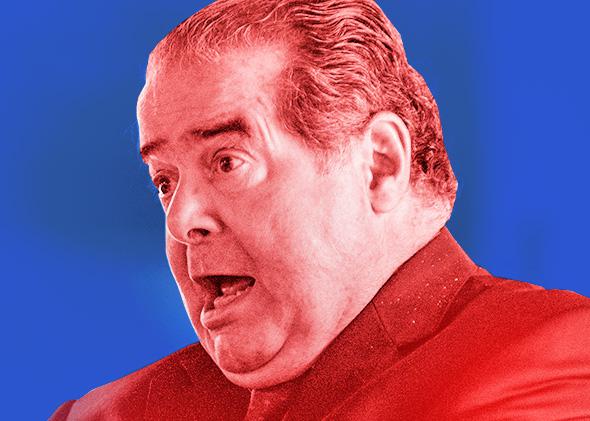Dear Breakfasters,
Just a quick postcard from inside the Supreme Court chamber Monday morning as the last opinions and dissents, and dissents from dissents, and concurrences styled as dissents, were read from the bench this term.
You have doubtless already learned that the main opinion in Glossip v. Gross, the Oklahoma lethal injection case, was read by Justice Samuel Alito, who found, along with the three other conservative justices and Justice Anthony Kennedy, that the use of one of three drugs in Oklahoma’s lethal injection protocol, midazolam, does not violate an inmate’s constitutional rights. The drug, involved in multiple botched executions, does not violate the Eighth Amendment’s prohibition of cruel and unusual punishment, Alito said, adding that from now on the burden is on the inmate to identify a known and available alternative method of execution. Alito’s opinion carefully tracks his views expressed at oral argument in this case, including the suggestion that it is “anti-death-penalty advocates” who made procuring more effective drugs problematic in the first place.
What was notable, and really weird, inside the chamber, was not just that Justice Sonia Sotomayor read from her strong dissent in the case, or that Justice Stephen Breyer read from a lengthy dissent (joined only by Justice Ruth Bader Ginsburg) advocating for the abolition of the death penalty altogether. Breyer and Ginsburg said capital punishment violates the Eighth Amendment based on an elaborate statistical and factual account of the ways in which it cannot and will never be administered fairly. (Breyer quite cheekily references (twice) the DNA exoneration of Henry Lee McCollum, in September, as someone who “did not commit the rape and murder for which he had been sentenced to death.” Justice Antonin Scalia had once used McCollum as the poster boy for why the death penalty is morally necessary.)
But in addition to the twin dissents, Scalia announced—after the reading of the dissents—that he was concurring in the majority opinion but had some things to say about the dissents. Since no written summary of his statement was provided, you will need to take my word for it that what he read deviated from his written concurrence in some really odd ways. And while I don’t want to spend too much more time on Scalia acting oddly, this was very odd. He opened his statement—which seemed not to have been written down, and didn’t really track his written opinion—with: “Last Friday five justices of this court took the issue” of same-sex marriage away from the voters based on their “policy preferences” and then noted that today two justices sought to do that again, with the call to abolish the death penalty. In case you were wondering, he isn’t over Obergefell.
Scalia went on to note that the death penalty is expressly contemplated by the words of the Constitution, and continued with the accusation that maybe it’s a good thing that “two justices are willing to kill the death penalty outright rather than just pecking it to death.”
Weirder? He concluded with the oral statement that “not often in the law is it the case that so few have changed so much.” The latter may not be as pointed an indictment as the zinger at the end of his written concurrence, which accuses Breyer (but not his partner in crime, Ginsburg) of rejecting, well, “the Enlightenment.” But it’s a deliberate echo of Breyer’s lament in reading his dissent aloud in the 2007 Seattle schools case, that, “It is not often in the law that so few have so quickly changed so much.” This is really a doubly strange accusation since of course the two dissenters—unlike the majority in the schools case—have in fact changed nothing at all, since they are the only two willing to do away with the death penalty. It may simply be a frustrated reference to five justices changing so much doctrine in a few short days. But strange to go after Breyer and Ginsburg on a losing side of a lethal injection drug case for this. All that changed here, really, is their minds on the constitutionality of capital punishment
But maybe that’s the real sin.
In any event, the readings of the opinions in the other two cases, the Arizona redistricting and EPA cases, went forward without oral dissents from any justices, or their friends and families, and the court adjourned until October.
One gets the sense that one more day on that bench together and someone might have lost an eye or tooth.
Read the previous entry, by Walter Dellinger. Read the next entry, by Mark Joseph Stern.
